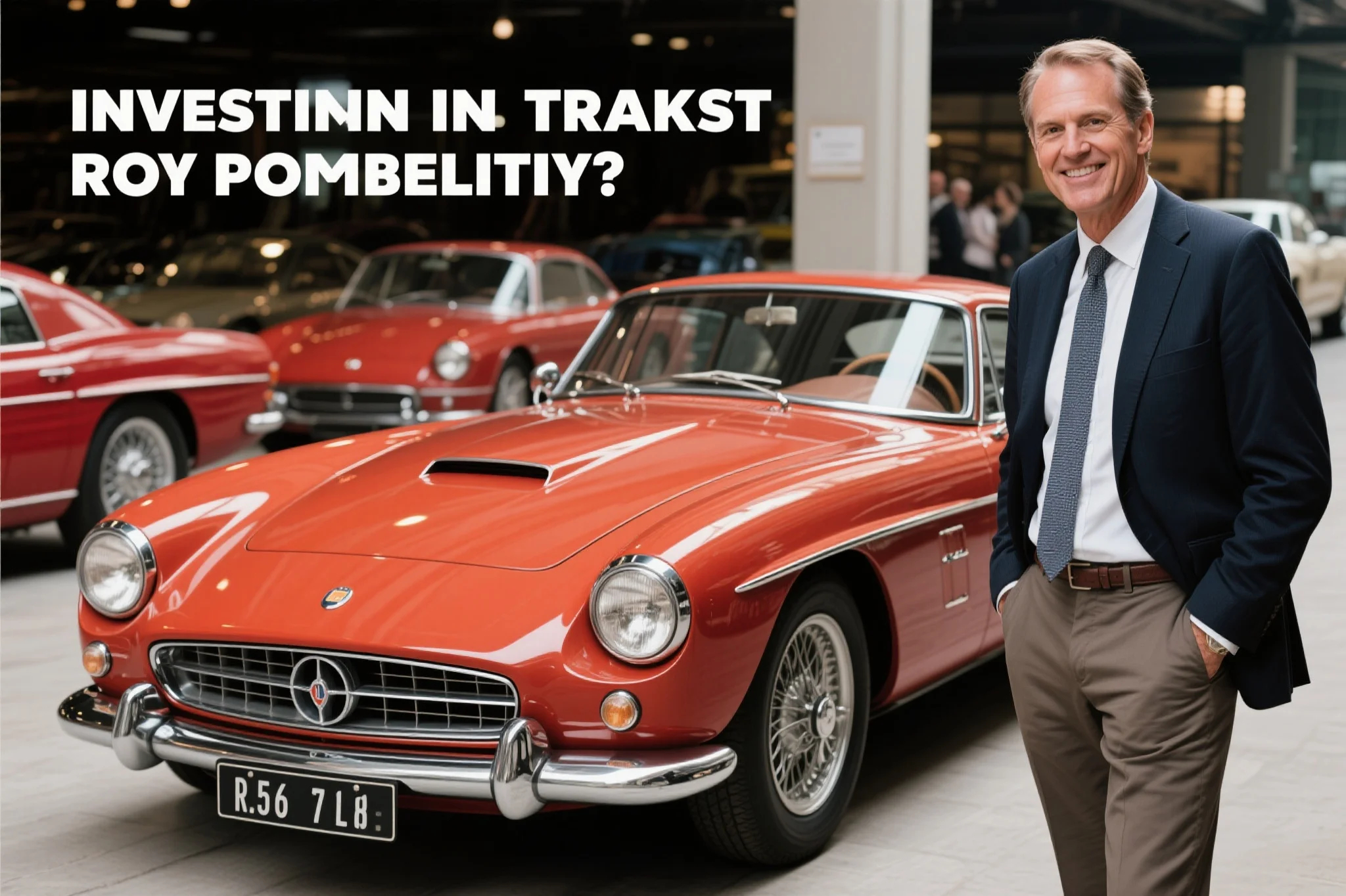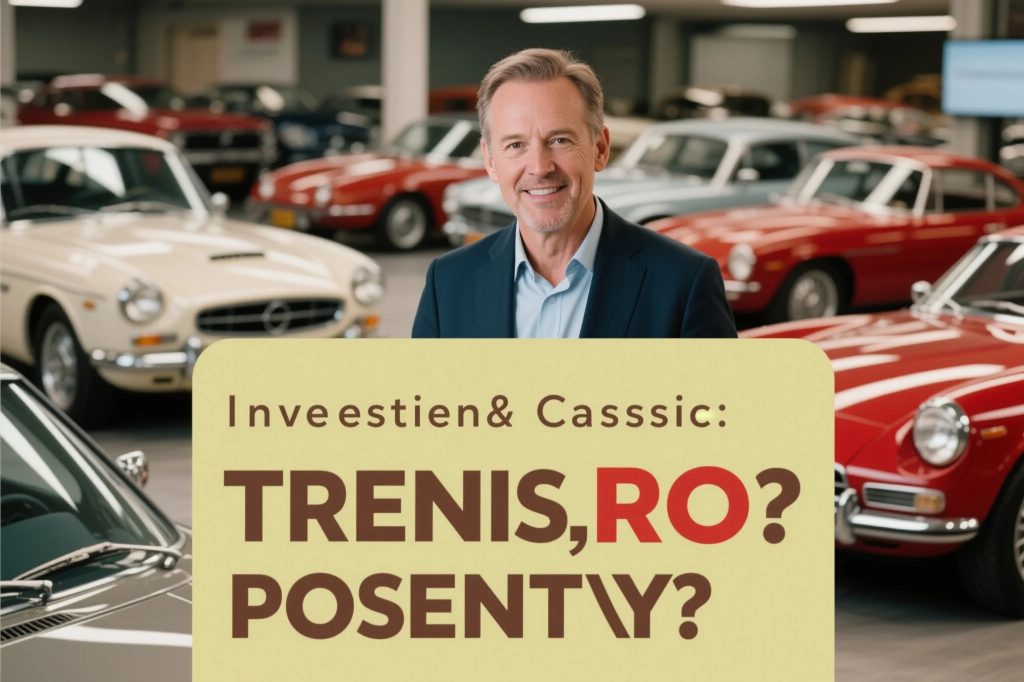
The world of classic cars has evolved from a passionate hobby into a sophisticated alternative investment class, attracting both wealthy collectors and institutional investors. This transformation reflects the growing recognition of rare automobiles as legitimate luxury assets with significant vehicle appreciation potential. The collector market for vintage vehicles now represents a multi-billion dollar industry, with certain models outperforming traditional financial assets over the past decade. For those exploring alternative investment opportunities, classic cars offer unique advantages worth considering.
The Historical Performance of Classic Cars as Investments
Examining the long-term vehicle appreciation of classic cars reveals compelling patterns that distinguish them from other luxury assets. Unlike many collectibles that fluctuate with economic cycles, top-tier vintage automobiles have demonstrated remarkable resilience, maintaining value through market downturns. The collector market operates on fundamentally different principles than mainstream financial markets, with scarcity and provenance driving alternative investment returns rather than corporate earnings or interest rates. Historical auction data shows that carefully selected classic cars have delivered annualized returns between 8-12% over multi-decade periods, rivaling equity markets while offering lower volatility. Learn more about historical investment performance across different asset classes.
Current Market Dynamics in the Classic Car Sector
The contemporary collector market for classic cars reflects several powerful trends reshaping this alternative investment space. Demographic shifts play a crucial role, as baby boomers with emotional connections to certain models drive demand while younger generations develop new appreciation for automotive history. The globalization of wealth has expanded the luxury asset buyer pool dramatically, with collectors from emerging markets pursuing trophy vehicles that symbolize status. Meanwhile, technological advancements in preservation and restoration have enhanced vehicle appreciation potential by extending the lifespan of collectible automobiles. Discover how global luxury market trends are influencing collector behavior.
Identifying High-Potential Classic Car Investments
Successful navigation of the classic cars alternative investment landscape requires understanding what drives exceptional vehicle appreciation. The most sought-after luxury assets in the collector market typically share several characteristics: limited production numbers, historical significance, technical innovation, and aesthetic appeal. Investment-grade vehicles often come from defunct manufacturers or represent the final evolution of particular engineering approaches. Market intelligence suggests focusing on models that were significant in their era but undervalued relative to their historical importance, as these often deliver the most substantial vehicle appreciation when the market corrects. Explore our guide to identifying undervalued assets in alternative markets.

The Role of Classic Cars in Diversified Portfolios
As an alternative investment, classic cars offer unique diversification benefits that complement traditional luxury assets like art and real estate. Their low correlation with financial markets makes them particularly valuable for collector market participants seeking to hedge against inflation and economic uncertainty. The tangible nature of automotive luxury assets provides psychological comfort during volatile periods, while the active enthusiast community supports liquidity in ways that other collectibles often lack. Financial advisors increasingly recommend allocating 5-15% of high-net-worth portfolios to tangible assets like classic cars, with proper consideration given to storage, insurance, and maintenance costs that impact net vehicle appreciation. Read about portfolio diversification strategies for sophisticated investors.
Risk Management in Classic Car Investing
While the collector market for classic cars has delivered impressive vehicle appreciation, prudent investors recognize the unique risks of this alternative investment class. Authentication challenges remain significant, with sophisticated forgeries appearing even among high-profile luxury assets. Market liquidity varies dramatically by make and model, with some vehicles taking years to sell at target prices. Condition assessment requires specialized expertise, as restoration quality significantly impacts long-term vehicle appreciation potential. The most successful investors approach classic cars with the same disciplined risk management they apply to traditional assets, working exclusively with reputable dealers, obtaining third-party inspections, and maintaining proper insurance coverage. Learn about managing risks in unconventional investments.
The Future of Classic Car as an Asset Class
The evolution of classic cars from enthusiast collectibles to institutional-grade alternative investments suggests continued maturation of this market segment. Financialization trends including fractional ownership platforms and investment funds dedicated to luxury assets are making the collector market more accessible while potentially enhancing liquidity. Technological advancements in vehicle authentication and digital marketplaces are reducing transaction friction, while blockchain applications may further improve provenance tracking critical to vehicle appreciation. As younger generations develop emotional connections to different automotive eras, the definition of what constitutes a classic car continues to evolve, creating new opportunities for forward-looking investors. Discover emerging trends in the collector car space.
Implementing a Classic Car Investment Strategy
For investors convinced by the case for classic cars as an alternative investment, practical implementation requires specialized knowledge. Building a meaningful position in the collector market demands understanding not just financial metrics but also the cultural and mechanical aspects that drive vehicle appreciation. Successful participants often start with more affordable luxury assets to gain experience before progressing to seven-figure acquisitions. Partnering with reputable specialists, attending major auctions, and participating in enthusiast communities all contribute to making informed decisions in this unique alternative investment space. Those who approach classic cars with patience, passion, and professional guidance may find they offer not just financial rewards but the incomparable joy of automotive stewardship. Get started with our comprehensive guide to building a collector car portfolio.